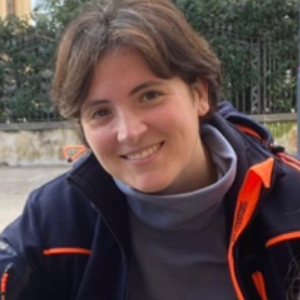Title : Geo Education exploratory learning sessions on field and underwater
Abstract:
Our Planet is facing multiple challenges and to address them a multiperspective attitude is needed. On this perspective, the environmental education is a mission, which cannot be accomplished without getting your hands dirty, directly on field. This contribution is an overview of educational and field-based activities performed in the last few years (2021-2023) at the interface between freshwater and marine ecosystems, across the Italian peninsula and beyond. Considering how after the pandemic break a vibrant environment developed around Ocean Literacy and Man and Biosphere relationships all over the world, is particularly important to keep going on participative processes to address better informed decision-making procedures even in the near future. Protected areas are the privileged tool to make happen these kind of learning experiences, but a strong experience and a solid scientific background is needed to succeed in cutting-edge learning experiences. There are several connection points between landward and seaward environments, trying to understand them make possible a wider sight to enable restoration and recovery interventions where needed beside aware daily natural resources management where relevant natural heritage is present and need to be preserved even for future generations.
Audience Take Away:
- Marine and environmental sciences can dialogue in daily conservation practices. An integrated approach allow learner to gain experiences in a wider vision resembling the complexity of ecological systems.
- Some practical insights from different kind of protected areas will be shared, with reference to specific actions developed accordingly to the extant conservation measures of the intercepted areas.
- Some insights can be useful to develop further transboundary and transdisciplinary collaboration, as properly conceived environmental sciences practices should require.
- Is this research that other faculty could use to expand their research or teaching? The provided examples could represent interesting tips to develop other educational plans and to engage different stakeholders in the near future.
- The practical experienced shared in this contribution represent even some success case studies which enabled the recognition of subsequent research programs and field-based interventions.
- Some examples related to the herein shared experiences ameliorated the extant situation in some of the intercepted areas where some knowledge gaps were present, through an evidence-based educational approach.


